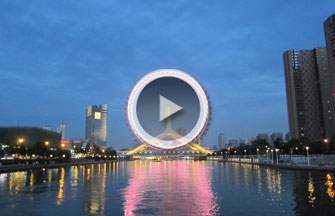Beijing, Beijing, where are you?
Updated: 2013-10-22 07:25
By Pauline D. Loh (China Daily USA)
|
||||||||
My better half grew up in a hutong a stone's throw from revolutionary writer Lu Xun's first home near the Forbidden City. My mother-in-law still lives in the old courtyard house at Caishikou, a home where she has spent the better part of 90 years.
Every weekend we visit, I see changes taking place all around us. An office tower casts a dark shadow on the alley from the southwest corner, and the metro station is at the doorstep, with more digging going on to expand the line.
Across the road, a housing development has replaced the row of ancient single-story houses that used to sell tripe and liver soup, and mutton-shank hotpots. They also provided outdated services such as knife-sharpening and cobbling shoes.
Our mother's hutong is under national heritage protection, thanks to our illustrious neighbor once upon a time, but we had once considered buying an apartment here to be nearer the old lady. However, at 40,000 to 50,000 yuan ($6,557 to $8,197) a square meter, it was priced way beyond our reach as salaried journalists.
The government may have tried to impose property restrictions, but it seems like a battle between an irresistible force and an immovable object.
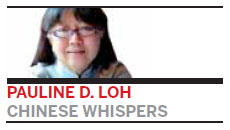
Perhaps this micro-blogger says it all:
"Beijing is no longer Beijing.
"The original inhabitants have all moved to Huilongguan, Daxing and Yizhuang.
"All that's left are Houhai bars and restaurants for expatriates, residences in Nanchizi for officials, tourist traps at Liulichang and the souvenir market at Hongqiao.
"Beijing is not about Line 8, Line 4 or 5 on the Metro line. It is the red and white public buses that were slow and steady but never caught in traffic gridlock. It is about bicycles with crowbar handles with a basket in front for shopping.
"In the morning, it is about buying breakfast from vendors with a pot of soybean milk and a basket of dough fritters hanging from their shoulders.
"Beijing is not about designer-clad white-collar workers rushing to and from work, it is about old folks on wooden stools wearing white singlets, with a palm-leafed fan under the old plane trees.
"Beijing is not about modern apartments that cost 50,000 yuan a square meter, it is about crowded courtyard homes with a cheerful community of families living together.
"It is not about shutting yourself away from the world with headphones and the latest playlists downloaded from the Web, it is about holding an old-fashioned radio playing Peking Opera in one hand and a warbling bird in a cage in the other.
"There are no more Beijingers in Beijing. Where have they all gone? Beijing is now a multinational cosmopolis, and the Chinese accents are from every province but here.
"Beijingers are homeless now. While flocks of migrant workers return home in planes, trains and cars during the Spring Festival, where can we go when we are homesick?
"Please don't call it Beijing anymore. Just call it The Capital City."
Progress is bittersweet, and old Beijingers like the spouse and my mother-in-law are paying the price by seeing their home city torn down and rebuilt every day.
It is a displacement that is hard to reconcile, especially when it comes to a city so entrenched in tradition and history.
Home is where the heart is, and trite though that may seem, it may be the only recourse for a community that has been forced to assimilate, and migrate, and learn to live with memories of those good old, bad old days.
On a lighter note, those who really want to meet a true-blue Beijinger should simply hail a cab. Most of them hold a local household registration and possess a willing tongue and acerbic wit.
While we know all cab drivers from London to Timbuktu think they are experts on every subject, the Beijing cab driver is sincere in wanting to educate passengers on the inner machineries of his government. It's his city, it's his capital. Listen, and learn.
Contact the writer at paulined@chinadaily.com.cn.
(China Daily USA 10/22/2013 page8)

 Nature's masterpieces
Nature's masterpieces
 Riot police off to Libya peacekeeping mission
Riot police off to Libya peacekeeping mission Teacher killed, two wounded in Nevada middle school shooting
Teacher killed, two wounded in Nevada middle school shooting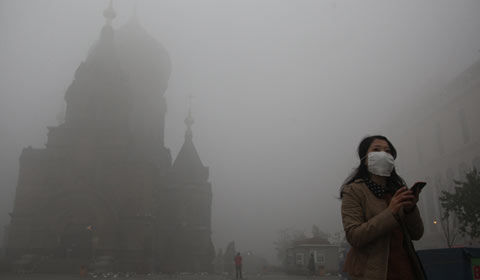
 Smog wraps northeast, schools forced to close
Smog wraps northeast, schools forced to close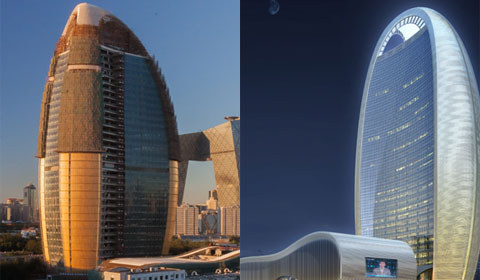
 Architect looks to the big picture
Architect looks to the big picture
 Teachers, students divided over Gaokao reform plan
Teachers, students divided over Gaokao reform plan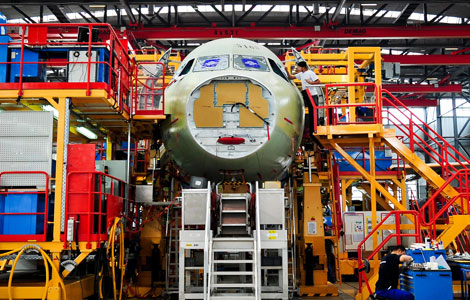
 Dogfight looms over jets
Dogfight looms over jets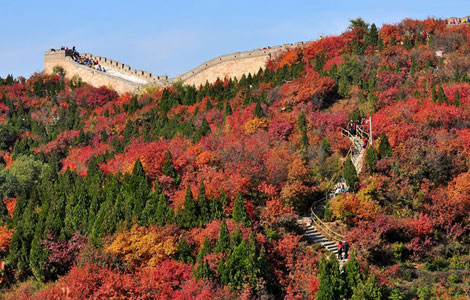
 Peak season for fall foliage in Beijing
Peak season for fall foliage in Beijing
Most Viewed
Editor's Picks

|

|

|

|

|
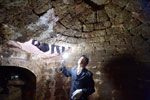
|
Today's Top News
Building a bridge of hearts in the heartland of the US
Li-Medvedev meeting to boost cooperation
China issues white paper on Tibet's development
Hollywood must think bigger about China
Nation witnesses launch of luxury rental businesses
Obama vows to get healthcare website fixed
US OKs Alibaba structure
Economy to see 'good ending' in Q4
US Weekly

|

|

